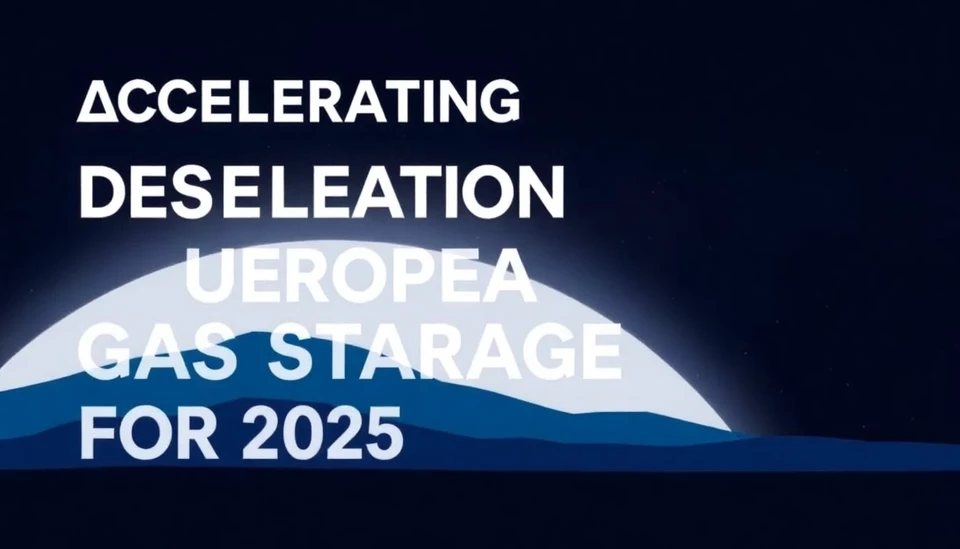
As we step into 2025, European gas storage facilities are experiencing a remarkable depletion rate, the fastest observed since 2018. This development raises significant concerns amidst ongoing geopolitical tensions and fluctuating market dynamics, particularly in the context of energy security and pricing within the continent.
Data recently released indicates that gas reserves in Europe are being consumed at an alarming rate. This depletion follows months of sustained high demand for natural gas across multiple sectors, exacerbated by an unusually cold winter and the ongoing recovery from the global pandemic that has intensified energy consumption patterns.
One of the primary factors contributing to this rapid decline is the strategic decision by various countries to stockpile gas to ensure energy security during uncertain times. As a consequence, countries quietly drained their reserves without adequately replenishing them, resulting in a significant imbalance that has now come to the forefront.
The implications of this situation are profound. With reserves dwindling, energy prices are likely to surge, impacting not only consumers but also businesses relying heavily on stable energy supplies. Such a scenario could lead to increased inflationary pressures, contributing to a challenging economic landscape for several European nations.
Industry analysts are closely monitoring the situation, warning that if these trends continue, Europe might face a shortage of natural gas that could affect heating, electricity generation, and industrial output. The risks are particularly pronounced for countries that heavily depend on gas imports, thus increasing their vulnerability to global supply chain disruptions.
Moreover, the geopolitical dimensions cannot be overlooked. As Europe seeks to diversify its energy sources in light of the ongoing energy transition, reliance on certain suppliers has created a fragile dependency that could prove detrimental. This precarious situation has led to calls for enhanced collaboration among EU member states to improve energy resilience and establish more strategic reserves.
The current trajectory necessitates urgent action from policymakers and industry leaders alike. Enhanced investment in alternative energy sources, such as renewables and hydrogen, alongside increased efforts in energy efficiency, are crucial to mitigate risks associated with natural gas shortages. As the continent faces a rapidly evolving energy landscape, the urgency for innovative solutions is at an all-time high.
This critical turning point emphasizes the need for vigilance and adaptability to ensure that energy needs are met sustainably and securely in the years ahead. As European nations grapple with these emerging challenges, the developments in gas storage and consumption will remain a pivotal area of focus closely watched by governments, industries, and consumers alike.
#EuropeanGas #EnergySecurity #GasStorage #NaturalGas #EnergyCrisis #GasDepletion #EUEnergy #WinterDemand #GeopoliticalRisks
Author: John Harris




